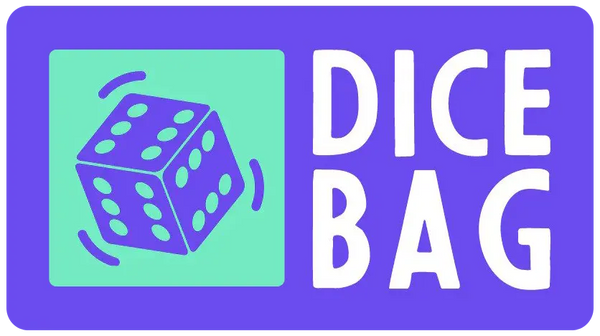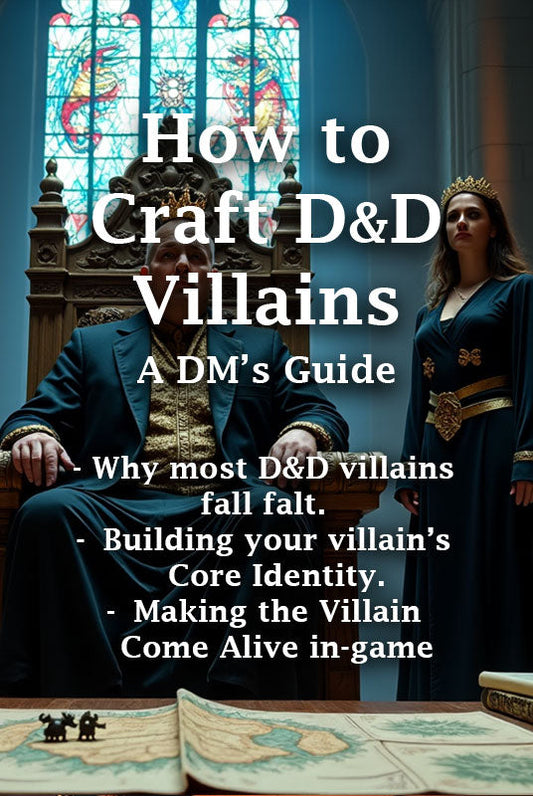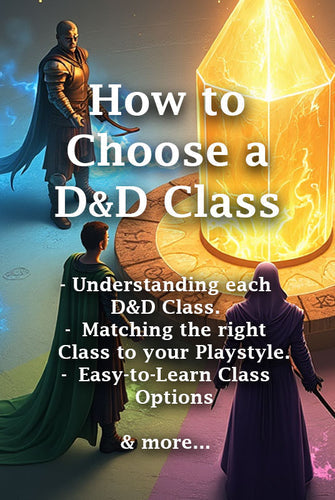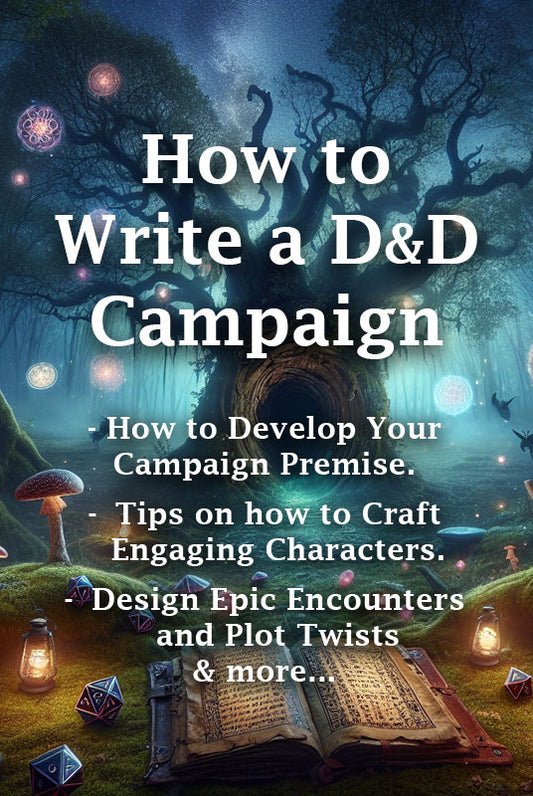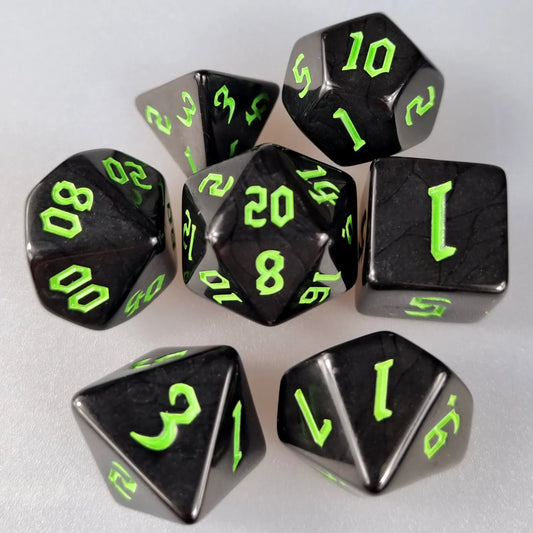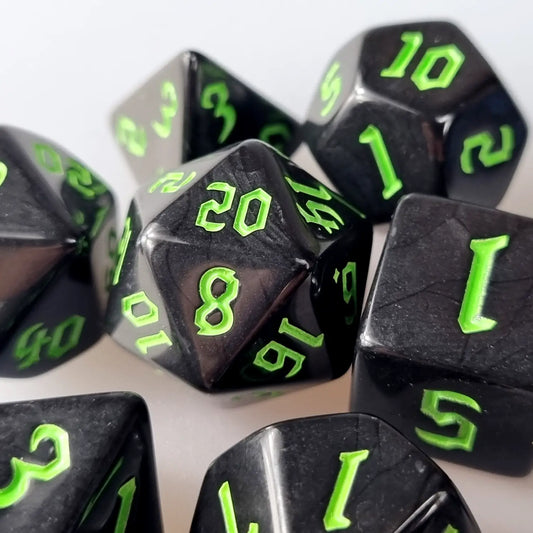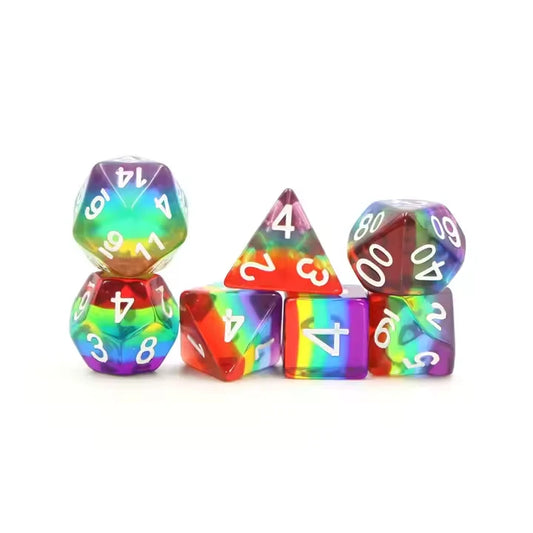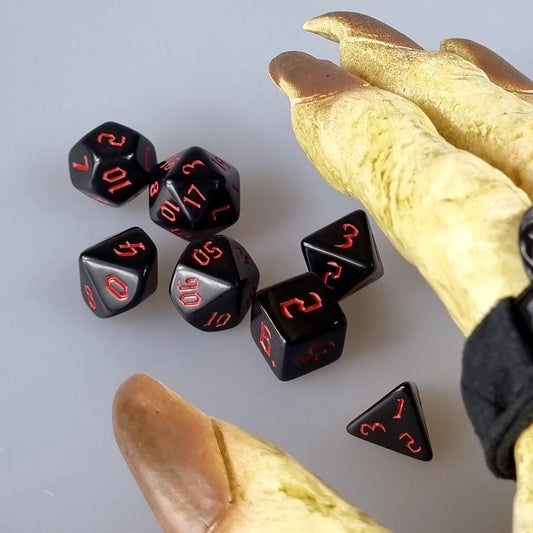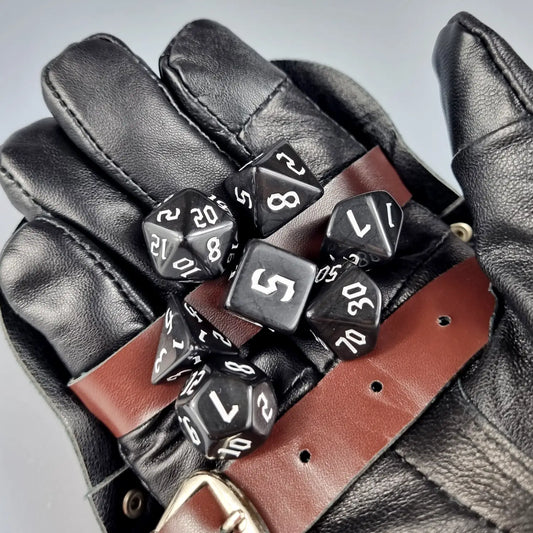
Embarking on the journey of becoming a Dungeon Master (DM) transforms you into the architect of adventures, the voice of countless non-player characters (NPCs), and the referee of engaging narratives. Your role, pivotal in crafting engaging stories, leverages resources such as the Dungeon Master's Guide and the Monster Manual, guiding players through challenges and facilitating a cooperative storytelling experience. Knowing how to DM doesn’t require memorisation of every rule initially; starting with a fundamental understanding and diving into the D&D Dungeon Master's Guide can set you on a successful path. As you ponder how to be a Dungeon Master, embracing the balance between narration and adjudication becomes your compass in this creative endeavour.
This guide serves as your compass, offering insights into mastering DM essentials - from preparation and resource management, highlighted by the DM Guide 5e and DND setup, to running adventures that captivate and challenge your
players. It lays down the foundational steps for creating engaging stories and characters, while also emphasizing the importance of adapting to player actions and maintaining flexibility. Whether you're navigating through pre-written
adventures or crafting your own legendary campaigns, the suggestions herein aim to elevate your skills in fostering memorable experiences and ensuring your table remains a vibrant arena of imagination and camaraderie.
Understanding the Basics of DMing
Grasping Core Game Mechanics
- Learn the Rules: Familiarise yourself with the basic rules of the game, which are essential for smooth gameplay. This includes understanding combat, skill checks, and character creation. You don't need to memorise all the rules from the Player's Handbook (PHB), Dungeon Master's Guide (DMG), and Monster Manual (MM), but a good grasp of the fundamentals will help you manage the game effectively.
- Role of the Dungeon Master: Remember, as a DM, you are not an opponent but a storyteller and referee. Your role involves managing NPCs, monsters, traps, and plot points to create a compelling narrative.
- Making Rulings: You have the authority to make game rulings to keep the game flowing. This might mean deviating from the rules or the published adventure when necessary.
Preparing for Sessions
- Start with Published Adventures: For those new to DMing, starting with a published adventure, like "Lost Mine of Phandelver," can provide a structured and engaging experience for both DMs and players.
- Note-Taking: Keep detailed notes before, during, and after sessions to track NPCs, monsters, player actions, and story developments. This helps in maintaining continuity and enriching the game world.
- Resource Utilisation: Utilise tools like the Dungeon Master’s Guide, digital platforms like Roll20.net, and DnDBeyond.com, and resources from Wizards of the Coast and DMsGuild.com to enhance your game sessions.
Creating an Inclusive and Dynamic Environment
- Establish Table Rules: It’s crucial to set clear table rules to ensure a respectful and inclusive environment. Prohibit racism, homophobia, transphobia, or bullying. We know it's obvious to most people, but it can come up, especially if lesser-known acquaintances are introduced to the group to make up numbers.
- Encourage Role-Playing: Engage players by encouraging them to explore their characters' personalities and backstories. Use props, like mini-figures, and visual aids to help them visualise the environment and immerse themselves in the game world.
- Adapt and React: Be prepared to adapt the story based on player actions. This flexibility can lead to a more dynamic and responsive gameplay experience, keeping players engaged and invested in the adventure.
These foundational aspects of DMing set the stage for a rewarding experience as you guide your players through exciting adventures and creative storytelling.
Preparation and Resource Management
Effective Campaign Outlining
- Campaign Framework: Begin by sketching a broad outline of your campaign, focusing on key plot points and potential encounters. This framework should serve as a flexible guide, adaptable to your players' decisions and actions, ensuring a dynamic storytelling experience.
- Flexible Planning: Embrace flexibility in your campaign planning. Prepare for each session by understanding the likely paths your players might take, but always be ready to improvise. This approach keeps your game fluid and responsive to player creativity.
Session Preparation Techniques
- Pre-Session Checklist: Before each session, confirm the party's next steps, such as "heading to X to accomplish Y." This clarity helps you focus your preparation on relevant encounters and story developments.
- Post-Session Actions: After every session, take time to write a recap, adjust any ongoing timers or countdowns, and let your ideas develop. This practice ensures continuity and enriches the game's narrative depth.
- Detailed Scene Planning: When preparing scenes, start with visual descriptions and integrate other senses to create a vivid experience. Focus on a key detail in each scene to draw player interest and engagement.
Resource Utilisation and Management
- Utilise Digital and Print Resources: Make use of a variety of resources including the DM's Guide, Monster Manual, and online platforms such as DMsGuild and DriveThruRPG for fresh content and inspiration.
- NPC and Encounter Building: Prepare NPCs with clear motivations and design encounters with depth, considering multiple levels of 'Why' to enrich the gameplay. Keep a list of common NPC names and characteristics handy to maintain consistency and realism in your world.
- Learning and Development: Continuously explore new DM resources, such as recommended websites, blogs, and YouTube channels like Matt Colville and the Official D&D channel, to improve your skills and keep your sessions engaging.
Creating Engaging Stories and Characters
As a Dungeon Master, your primary role involves weaving compelling narratives and creating vibrant characters that enrich the Dungeons & Dragons experience. Here are some strategic approaches to enhance your storytelling and character development skills:
Develop Dynamic Characters
- Complexity and Conflict: Introduce characters with internal conflicts and contradictions to add depth and intrigue. For example, a warrior who fears the dark or a wizard who struggles with spellcasting under pressure.
- Vulnerability: Allow characters to show their vulnerabilities. This not only makes them more relatable but also provides opportunities for character growth and development.
- Uniqueness: Avoid clichés by crafting unique backstories and motivations for your characters. Think outside the typical archetypes to surprise and engage your players.
Enhance Storytelling Through Player Interaction
- Player Choices and Consequences: Make the game world responsive to player decisions. This can mean altering storylines or having NPCs react differently based on player actions, reinforcing the impact of their choices.
- Motivations and Goals: Link character backgrounds and motivations with the overarching story. Encourage players to explore their characters’ desires and fears, which can lead to richer role-playing opportunities.
Utilise Improvisation
- Adaptability: Be prepared to alter storylines as players might take unexpected paths. This flexibility can lead to more personalised and engaging gameplay.
- NPCs and Scenarios: Create NPCs with distinct personalities and agendas. Use improvisation to bring these characters to life and enhance the narrative based on player interactions.
By focusing on these elements, you can create a game environment that is both dynamic and immersive, encouraging players to engage deeply with the story and each other.
Adapting to Player Actions and Maintaining Flexibility
Encourage Player Agency and Maintain Flexibility
- Support Player Decisions: Always be prepared to support your players if their characters choose paths you hadn't planned. This encourages player agency and trust, reinforcing that you are on their side and not just a narrator of a pre-set story.
- Flexibility in Campaign Management: Adaptability is key. Be ready to improvise and adjust the storyline based on player actions. This might mean altering the fate of NPCs, changing the outcome of significant events, or introducing new story arcs that align with the players' decisions.
- Handling Unpredictable Behaviour: Expect the unexpected from players and maintain flexibility. Whether it's a surprising decision during combat or a creative solution to a problem, be prepared to go with the flow and integrate these elements smoothly into the campaign.
Dynamic Encounter Management
- Adjusting Challenges on the Fly: Depending on how encounters unfold, you might need to modify enemy numbers or introduce new rules to maintain the game's balance and excitement.
- Using Miniatures and Theatre of the Mind: Choose the method that best suits the situation. Some scenarios may benefit from the visual aids of miniatures, while others might be more engaging through descriptive, narrative-driven "theatre of the mind" approaches.
Enhancing Engagement Through Consequences and Storytelling
- Consequences of Player Actions: Show players the impact of their decisions within the game world. This could mean altering the story's direction or changing how NPCs interact with the party based on previous actions.
- Moral Dilemmas and Negotiations: Introduce moral dilemmas to add depth to the gameplay. Provide options for negotiation or retreat to offer a break from constant combat and allow for richer character development.
- Incorporating Player Backgrounds: Make the effort to weave individual character backgrounds into the main story, enhancing personal engagement and investment in the narrative.
Conclusion
Embarking on the journey of a Dungeon Master is a path filled with creative storytelling, dynamic character development, and the adept management of a world that thrives on player interaction and flexibility. We have traversed the essentials of DMing, from understanding the core mechanics and leaning into the art of preparation and adaptation, to fostering an environment that champions inclusivity and dynamic engagement. The guidance provided emphasises the balance between being the architect of grand adventures and the mediator of player-driven narratives, ensuring that each session is a memorable foray into the realms of imagination.
As we conclude, it's pivotal to remember that the essence of being a successful Dungeon Master lies in the harmonious blend of meticulous preparation and the willingness to embrace the unexpected whims of player agency. The strategies and insights discussed serve not just as a foundation for beginners but as a continuous reference for enhancing one's craft in the art of DMing. Whether you're orchestrating your first campaign or seeking to enrich an ongoing saga, the journey of a Dungeon Master is one of endless learning, adaptation, and above all, shared storytelling that brings us together in the magic of the game.
FAQs
What are some tips for becoming a proficient Dungeon Master (DM)? To excel as a DM, it's important to set realistic expectations and prepare adequately but not excessively. Always keep your notes accessible, avoid overworking yourself, and strive for continuous improvement. Surround yourself with supportive people, maintain open communication with your players, and have confidence in your abilities.
How should I prepare for my initial Dungeon Master session? Begin by writing down the names, backgrounds, and motivations of all characters involved in your campaign. Review these details to familiarise yourself before proceeding with your preparation. This understanding of the characters will assist you in integrating them effectively into the game's narrative.
What essentials does a new Dungeon Master need? A new DM should have a comprehensive set of tools including dice, rulebooks, a monster manual, miniatures, a DM screen, a writing instrument, and a notebook or binder. These items are crucial for effectively organising and running a Dungeons & Dragons game.
Which campaign is recommended for a first-time Dungeon Master? The "Lost Mines of Phandelver" is highly recommended for new DMs. It is included in most basic D&D kits and offers a perfect introduction to the game for both new players and DMs. This campaign is particularly user-friendly, helping first-time DMs learn the game mechanics and storytelling techniques.
